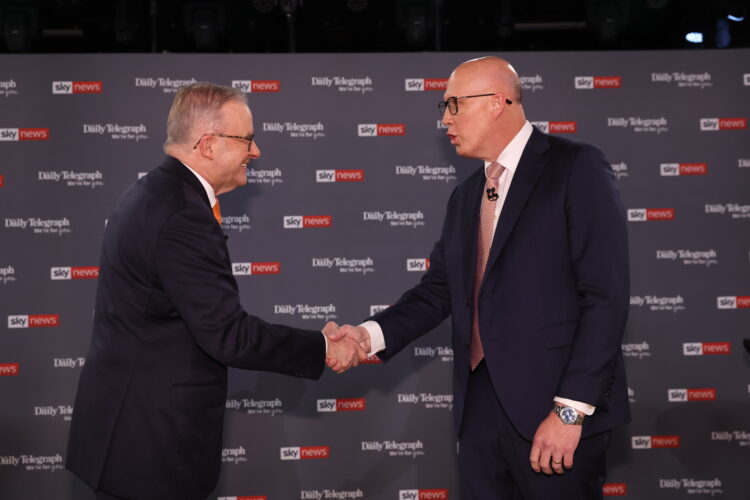Joshua Black
Postdoctoral Research Fellow
With Trump’s tariffs beginning to bite and consumer confidence dropping here and elsewhere, all eyes tonight will be on the debate between treasurer Jim Chalmers and his Coalition counterpart Angus Taylor. But who are the money men, and where are the money women?
Chalmers has long been Labor’s coming man. As treasurer over the last three years, he has modelled himself on Paul Keating, who made complex economic problems understandable for the public in the 1980s.
The similarities stop there. Unlike Keating who left school aged 14, Chalmers enjoyed a university education at Brisbane’s Griffith University and did his PhD in political science at the ANU, studying … you guessed it: Paul Keating. Before he was elected to federal parliament in 2013, Chalmers worked for Labor politicians including Treasurer Wayne Swan, right at the height of the global financial crisis.
Angus Taylor arrived on the scene at the same election, but his pathway to parliament was rather different. Twelve years older than Chalmers, Taylor was a medal-winning student of economics and law at the University of Sydney and enjoyed a Rhodes Scholarship to Oxford. He cut his commercial teeth with McKinsey and Co in the 1990s and Port Jackson Partners in the 2000s.
Taylor rose quickly up the Liberal league under Malcolm Turnbull and Scott Morrison years. From 2019 he was never too far from the whiff of scandal, with questions asked about documents potentially forged in his office, questionable government water purchases from companies he used to run and more.
These are the men who will compete tonight for the economic trust of Australians. But why no money women?
There has never been a woman federal treasurer in Australia. Just one woman, Julie Bishop, has held the portfolio in opposition, but she lost the confidence of colleagues and was replaced by Joe Hockey.
There have been more women in the finance portfolio. Liberal Senator Margaret Guilfoyle was the first woman to do that job in 1980, followed by Labor’s Penny Wong in 2010. Her colleague Katy Gallagher currently holds the job.
The states have done fractionally better. Victoria’s first woman treasurer got the job five months ago. NSW, Queensland and Tasmania have had one each. The territories are unique, with the ACT boasting three (including Gallagher) and the Northern Territory with six.
It matters who our treasurers are. Their life experiences and perspectives help shape the economic debate at the heart of government. Better economic and social outcomes are likely if half of Australia’s population can see itself in the engine-room of economic policy.
